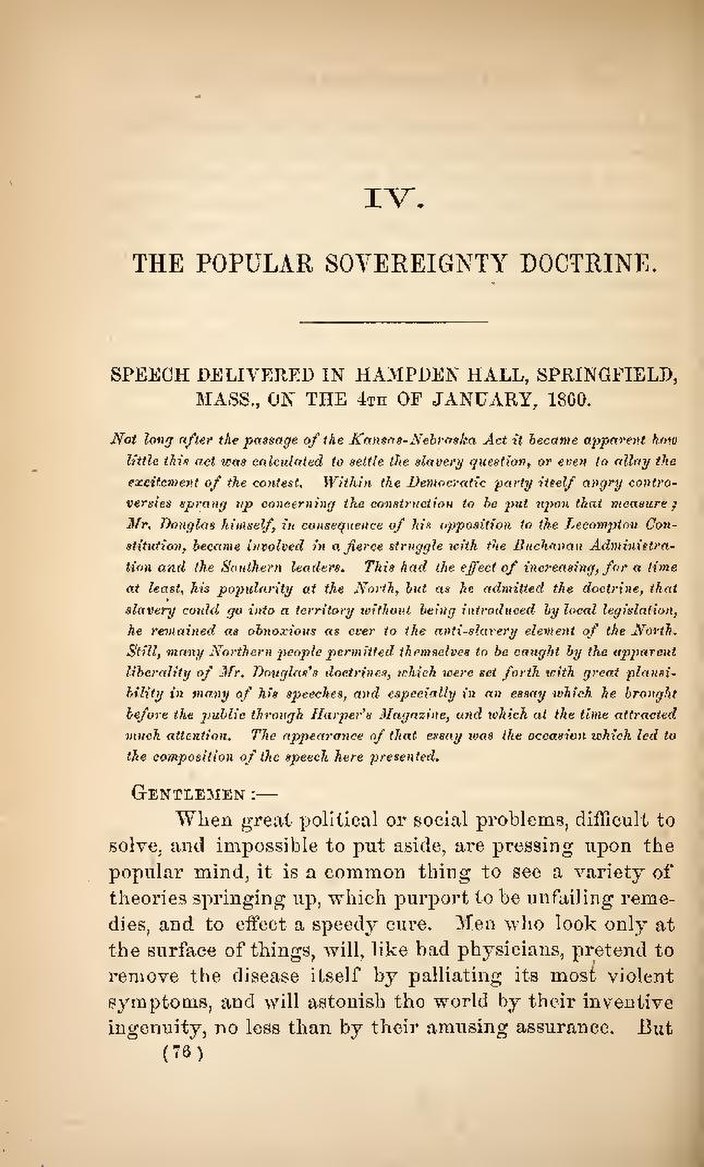IV.
THE POPULAR SOVEREIGNTY DOCTRINE.
SPEECH DELIVERED IN HAMPDEN HALL, SPRINGFIELD,
MASS. ON THE 4TH OF JANUARY, 1860.
Not long after the passage of the Kansas-Nebraska Act it became apparent how little this act was calculated to settle the slavery question, or even to alloy the excitement of the contest. Within the Democratic party itself angry controversies sprang up concerning the construction to be put upon that measure; Mr. Douglas himself, in consequence of his opposition to the Lecompton Constitution, became involved in a fierce struggle with the Buchanan Administration and the Southern leaders. This had the effect of increasing, for a time at least, his popularity at the North, but as he admitted the doctrine, that slavery could go into a Territory without being introduced by local legislation, he remained as obnoxious as ever to the anti-slavery element of the North. Still, many Northern people permitted themselves to be caught by the apparent liberality of Mr. Douglas's doctrines, which were set forth with great plausibility in many of his speeches, and especially in an essay which he brought before the public through Harper's Magazine, and which at the time attracted much attention. The appearance of that essay was the occasion which led to the composition of the speech here presented.
Gentlemen:—
When great political or social problems, difficult to
solve, and impossible to put aside, are pressing upon the
popular mind, it is a common thing to see a variety of
theories springing up which purport to be unfailing
remedies, and to effect a speedy cure. Men who look only at
the surface of things will, like bad physicians, pretend to
remove the disease itself by palliating its most violent
symptoms, and will astonish the world by their inventive
ingenuity, no less than by their amusing assurance. But
